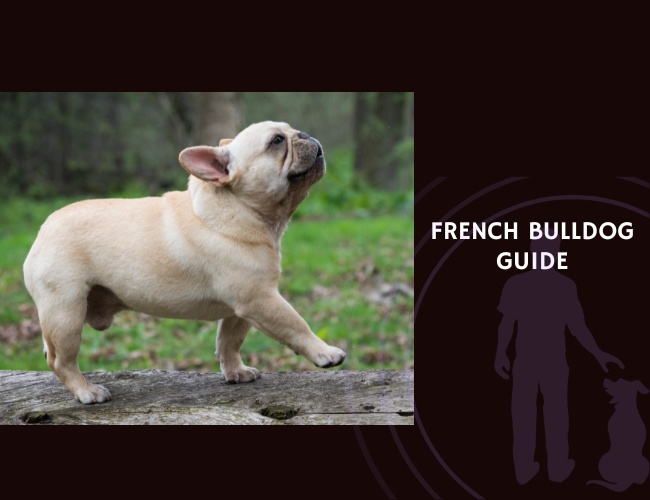Introduction to French Bulldogs
A Brief History
French Bulldogs have a story as charming as their signature bat ears. Originating from a blend of bull-type terriers and toy breeds, they were first developed in England and later became beloved in France, where their popularity skyrocketed. Back in the 1800s, lace workers in Nottingham took these little dogs along as companions when work led them to France. There, French Bulldogs quickly found friends among city dwellers who appreciated their compact size and affectionate nature.
Distinctive Features
What sets French Bulldogs apart? Let’s start with their appearance! These dogs have a short, muscular body and a flat, square-shaped head with an adorable pushed-in nose. Their most famous feature, those big ears, resemble little bat wings and stand upright, giving them a perpetually alert look. But it’s more than just looks—Frenchies have a uniquely expressive face, allowing them to communicate with their eyes and wrinkles almost as much as with their tail wags.
Their anatomy is brachycephalic, which means they have a short muzzle. This distinctive trait not only gives them their trademark snorts and snores but also means they need a bit of extra care, especially in hot weather.
Why Everyone Loves a Frenchie
There’s a reason French Bulldogs are winning hearts everywhere. With their sociable and people-oriented temperament, they thrive on human connection. Frenchies form strong attachments to their families, often following their favorite people from room to room or curling up beside them at bedtime. Their playfulness comes in short, joyful spurts, making them entertaining companions without requiring marathon fetch sessions.
French Bulldogs fit beautifully into urban and apartment living thanks to their moderate energy and manageable size. Their gentle demeanor with children and adults alike, paired with a knack for comedy, ensures they get along well in most households.
Frenchies aren’t just pets—they’re loyal friends who bring comfort and laughter, making every day a little brighter. Let’s explore more about what makes their personalities so special next.
Character and Temperament
Sociable and People-Oriented Companions
French Bulldogs are natural social butterflies. Their roots as companion dogs shine through in their daily behavior—they crave interaction and truly enjoy human company. Whether relaxing on the couch or taking part in family activities, these pups want to be involved. Their loving nature makes them especially popular in homes where people want a dog that feels like part of the family.
Attachment Behaviors and Proximity-Seeking Tendencies
If you are looking for a constant companion, you will find your match in a French Bulldog. Many Frenchies are what we call “velcro dogs”—they have a strong desire to stay close to their favorite people. It’s common for them to follow you from room to room, cuddle up beside you, or even rest their head in your lap. While this attachment is heartwarming, it is important to understand that they may become anxious or upset if left alone for long periods. Their close bonds can lead to separation anxiety, so structure and routine matter.
Playfulness and Moderate Energy Levels
French Bulldogs have a playful side that adds a lot of joy to their homes. However, their energy tends to come in short and lively bursts rather than marathon sessions. You might see a Frenchie zipping around with a toy, then quickly settling down for a nap. Unlike high-energy breeds that need hours of outdoor play, French Bulldogs are satisfied with gentle walks and brief playtime indoors. Their awesome sense of fun, mixed with moderate stamina, makes them well-suited for families in apartments or urban environments.
These unique qualities—sociability, devotion, and a gentle playfulness—are a big part of the French Bulldog’s charm. Their easygoing, people-focused personality is what endears them to families and singles alike. Understanding these core temperament traits helps lay a strong foundation for successful living and training with your Frenchie, making daily life a lot smoother and filled with affection.
Now, with a better grasp of these endearing personality traits, we’re well equipped to explore some of the behavioral challenges owners might encounter along the way.
Common Behavioral Challenges
Understanding Anxiety and Attachment
French Bulldogs are social butterflies at heart, and their deep bond with humans is a double-edged sword. This closeness often leads to separation anxiety when they’re left alone for long periods. You might notice excessive barking, whining, or even destructive habits, like chewing on furniture. These behaviors aren’t meant to be naughty—they’re a heartfelt plea for connection and comfort. Recognizing these signs early can help you support your Frenchie’s emotional well-being and reduce their stress at home.🧡
Vocalization and Attention-Seeking
Does your Frenchie “talk” a lot? Barking and whimpering are their main ways to communicate when bored or seeking attention. While some chattiness is normal, frequent vocalization might signal unmet needs, such as lack of mental stimulation or loneliness. French Bulldogs thrive on interaction, and sometimes, they use their voices just to say, “Hey, notice me!” Providing toys, games, and attention during the day can help dial down noisy episodes and keep their tails wagging.
Stubborn Streak and Independence
Every French Bulldog has a unique personality, and a bit of stubbornness comes with the territory. Sometimes, they may seem uninterested in commands—especially if routines feel too repetitive or the environment is low on excitement. This independence isn’t defiance; it’s just a reflection of their intelligent and curious nature. They need engaging, creative activities to spark their interest and keep training sessions positive.
Frenchies are happiest when we understand their feelings and meet their need for affection, entertainment, and gentle guidance. Navigating these common quirks builds trust and makes living together much more joyful.
Let’s continue learning how to support your Frenchie’s development in the most effective way.

Training and Education
Positive Reinforcement: The Frenchie Way
Training a French Bulldog can be both fun and rewarding when you focus on what works best for their unique personalities. Frenchies are clever, but they can be a little stubborn, so patience and creativity go a long way. Instead of harsh corrections, use positive reinforcement—think treats, praise, and happy voices. These pups are motivated by food and love, so small tasty rewards for good behavior will encourage them to repeat it. Avoid yelling or punishment, as this can make them anxious or withdraw.
The Importance of Early Socialization
Socialization is vital in raising a confident, well-adjusted Frenchie. Puppies should meet a range of people, other dogs, and experience new sounds and places early on. This helps your dog grow up friendly and less fearful of new situations. Early exposure makes vet visits, grooming, and trips out less stressful for both you and your pet. Remember, each positive experience builds trust and helps reduce chances of defensive or anxious behaviors later.
Short Training Sessions for Success
French Bulldogs do best with training that’s short, engaging, and repeated often. Their attention span is limited, and they tire quickly, especially with their brachycephalic (short-nosed) anatomy. Aim for sessions of less than ten minutes, and always end on a good note. This keeps them excited for the next lesson and prevents boredom or frustration.
Keep Their Minds Busy
Frenchies are playful and enjoy mental challenges 😀. Enrichment activities like puzzle toys, scent games, and simple trick training keep their brains sharp. These activities help reduce boredom, which can lead to mischief or excessive vocalizing. Remember, a tired mind is a happy mind!
Through consistent, compassionate training, your Frenchie will gain confidence, trust, and skills to fit happily into your family. As you work together, you’ll discover even more about their needs in daily life and care.
Nutritional Needs and Diet
Managing weight gain and caloric intake
French Bulldogs are famous for their love of food, but this comes at a price—they’re prone to gaining weight quickly. Their short legs and lower energy levels mean they don’t burn as many calories as some other breeds. That’s why careful management of calories is so important! Aim to feed portions specific to your dog’s age, size, and activity level. Using a high-quality food designed for small or brachycephalic breeds is helpful, especially because these formulas often include small kibbles that are easier for Frenchies to eat.
We recommend regular weigh-ins. Even a small gain can have a big health impact, increasing the risks of joint problems and Brachycephalic Obstructive Airway Syndrome (BOAS). If your Frenchie starts looking a little rounder, don’t panic—just trim back on treats and measure meals more carefully 😀. It’s all about finding a balance that keeps your pup healthy and happy.
Ideal macronutrient balance and dietary considerations
French Bulldog Nutrition need a diet rich in protein to help keep their muscles strong. Too much fat, on the other hand, can contribute to extra padding that isn’t good for their joints or breathing. The ideal meal should include a controlled mix of protein, healthy fats, and carbohydrates. Look for foods that are specially formulated for small breeds—these usually get the macronutrient mix just right!
And don’t forget, some Frenchies may benefit from formulas made for brachycephalic breeds, helping them chew, swallow, and digest their food more easily.
Dealing with food allergies and sensitivities
Food allergies aren’t uncommon in French Bulldogs. You might notice itchy skin, ear infections, or tummy troubles. One approach is rotating different protein sources, like switching from chicken to fish or lamb, to help minimize potential reactions. Always introduce new foods slowly and keep an eye out for sensitivities. If you ever feel unsure, your veterinarian is a great resource for helping work through allergy issues.
By giving your Frenchie what they need at mealtime, you’re laying the foundation for better health and a happier, bouncier friend. Good nutrition is essential, not just for weight control but for keeping their skin, coat, and even their playful nature in top shape.
Ready to keep building your well-rounded care routine? There are other important aspects of French Bulldog health and happiness to keep exploring!
Charming. Comedic. Clingy.
Velcro dogs with a voice.
French Bulldogs are built for closeness. They follow you like a shadow—and if they feel ignored, they’re not shy about letting you know.
Big heart, small lungs.
Their flat faces may be cute, but they come with breathing risks. From heat to hikes, everything needs to be paced, gentle, and mindful.



All love, no distance.
Frenchies don’t just want your attention—they need it. Without structure and company, their sweetness turns to stress. Connection is their comfort zone.
Health Concerns and Management
Breathing and Airway Problems
French Bulldogs are known for their cute, squishy faces, but this trademark look comes with some health risks. One of the main issues is Brachycephalic Obstructive Airway Syndrome (BOAS). This condition makes it hard for them to breathe, especially when they’re excited, stressed, or overheated. Symptoms can include loud snoring, snorting, or difficulty catching their breath after play. Unfortunately, their short noses don’t allow air to pass as freely as in longer-nosed breeds. That means hot days, heavy exercise, or stressful situations can leave your Frenchie struggling. To keep them comfortable, always provide a cool spot to relax and avoid intense play during the heat of the day.
Spinal and Joint Issues
Frenchies may show off their iconic “screw tail,” but this look sometimes comes with spinal problems. They are at risk for conditions like hemivertebrae, where the bones in their spine form abnormally, and intervertebral disc disease (IVDD), which can cause pain or weakness. Signs of spine or joint pain include reluctance to jump, yelping during play, or even dragging a limb. If you notice any unusual movement, contacting your Veterinarian is essential. Regular, gentle exercise can keep your pup strong, but be careful with jumping or roughhousing.
Common Skin and Allergy Conditions
Skin issues are frequent in French Bulldogs, thanks to their adorable wrinkles and sensitive skin. Chronic dermatitis can pop up in skin folds, leading to redness or irritation. You may also see ear infections (otitis externa) and allergies caused by food or environmental triggers. Regularly cleaning their facial folds and ears can prevent infection. Watch out for scratching, licking, or patches of hair loss, which often signal allergies. Your Veterinarian can help you pinpoint causes and find the right treatment.
Routine veterinary checkups are the best way to catch health problems early, helping your Frenchie enjoy a long, happy life. Regular care and observation give you peace of mind—and a healthy, wiggly companion by your side😀.
Next, you’ll discover tips to create the perfect home environment that supports your Frenchie’s health and happiness every day.
Lifestyle and Living Environment
Perfectly Suited for Urban and Apartment Living
French Bulldogs shine in indoor settings, thriving in apartments and city homes. Thanks to their moderate energy, a small backyard or even a living room is often enough space for them. With a calm demeanor and polite manners, they rarely bark without reason, making them friendly neighbors in apartment complexes. Their deep love of human companionship also means they fit right into bustling households, preferring to be close to their favorite people rather than off exploring on their own.
However, it is important to remember that French Bulldogs do not enjoy being left alone for long stretches. They are happiest in homes where someone is around for much of the day. If you’re working long hours outside the house, consider doggy daycare or a pet sitter to keep your Frenchie company and prevent loneliness.
Watching Out for Temperature
French Bulldogs need careful temperature management due to their brachycephalic (flat-faced) anatomy. They can easily overheat in warm weather and may struggle with breathing if they get too excited or active when it is hot. It is safest to keep them indoors during high heat or humidity. Air conditioning, fans, and access to cool water are must-haves in warmer months. During walks, avoid the hottest parts of the day. In the winter, a snug dog sweater helps keep them cozy as they are sensitive to the cold as well.
Exercise and Fun: The Right Balance
Short, gentle walks and bursts of indoor play are perfect for the French Bulldog. Long, strenuous hikes or high-intensity games can quickly make them tired or even put their health at risk. Keep activities calm but interesting. Think short fetch sessions, soft toys, or strolls in the park.
Mental stimulation is just as vital as physical activity! Engage their clever minds with puzzle toys, scent games, or interactive treat dispensers. Rotating toys weekly and teaching new tricks can curb boredom and support good behavior. These environmental enrichments help your Frenchie stay cheerful and well-mannered.
Creating a life where your Frenchie has routine, companionship, and comfort is key to their well-being. With mindful care, French Bulldogs can be the happiest little residents in your home—each day bringing a wagging tail and warm, loving company.

Grooming and Physical Care
Coat maintenance and brushing requirements
French Bulldogs have a short, smooth coat that’s easy to manage for most pet parents. Brushing once or twice a week is ideal for removing loose hair, spreading natural oils, and keeping their coat shiny. Although they aren’t heavy shedders, regular brushing can help control shed and keep your furniture fur-free. Use a soft-bristle brush or a grooming mitt—both are gentle on their sensitive skin. If your Frenchie gets dirty, a quick bath with a mild dog shampoo is enough, but remember not to over-bathe as this may dry out their skin.
Cleaning facial folds and preventing infections
One of the most endearing features of a French Bulldog is their wrinkly face—those signature facial folds add charm but also need extra attention. Moisture, food, and even debris can get trapped in those folds, creating the perfect environment for bacteria or yeast to grow. To prevent infections, gently wipe their facial folds daily with a soft, damp cloth. Be sure to dry the folds thoroughly afterward. This routine keeps their skin healthy and helps you spot irritation or redness early.
Nail trimming and ear cleaning
Nail care is important for your Frenchie’s comfort and posture. Nails should be trimmed every two to three weeks, or as soon as you hear them clicking on the floor. Use a dog nail clipper or grinder and always take care not to cut too close to the quick, which can be painful and cause bleeding. If you’re nervous, your veterinarian or groomer can help.
French Bulldogs are prone to ear infections, partly due to their head shape and narrow ear canals. Check their ears weekly for dirt, redness, or odor. Clean gently with a veterinarian-approved solution, never inserting anything deep into the ear canal. Keeping their ears dry is just as important—wet ears are more likely to become infected.
With regular grooming, your French Bulldog will be healthy, comfortable, and always ready for cuddles. As you build these routines, you form strong habits that benefit your dog’s life and your bond.
Building a Strong Bond
Understanding Your Frenchie’s Communication Style
French Bulldogs are experts at making their feelings known, even if it’s not always with words. Watch for their expressive eyes, tail wags, and signature “head tilts”—these signs help you tune into their mood. Many Frenchies seek physical closeness, often curling up at your feet or nudging your hand for attention. It’s their way of saying, “I’m here, and I want to be with you.”
Since Frenchies are quite people-oriented, gentle vocalizations or quiet grunts can signal excitement, hunger, or even boredom. Responding to these subtle cues reassures your dog and builds strong trust.
Creating Routines That Support Their Well-Being
Just like us, French Bulldogs thrive on routine! Keeping their day predictable—set meal times, regular bathroom breaks, and dedicated play sessions—reduces anxiety and gives them a sense of comfort. Try routines like morning cuddles, a short walk after breakfast, and structured quiet time in the afternoon.
Add in regular grooming and health checks, so your Frenchie learns to expect gentle handling. Using treats and praise turns tasks like brushing or ear cleaning into bonding moments, not battles. Remember, Frenchies do best in stable, loving environments where they know what comes next.
Strengthening Your Relationship Through Play and Training
Playtime is more than just fun; it’s the heart of your bond! Enjoy interactive games like fetch, gentle tug-of-war, or treat puzzles. Frenchies have bursts of energy, so keep activities short and light to match their stamina. Simple toys, scent games, or learning a new trick together keeps their minds active and prevents boredom.
Training sessions, even five minutes a day, work wonders for connection. Always use positive reinforcement, focusing on treats or cheers instead of discipline. Celebrate small successes with a happy “Good job!” and plenty of cuddles. Over time, these joyful moments build confidence in your Frenchie—and trust between you both.
With clear communication and loving routines, you’re set for a happy partnership that supports your Frenchie’s emotional health every day. 😀
Conclusion: Is a French Bulldog Right for You?
Lifestyle compatibility considerations
Choosing a French Bulldog can be a joyful experience, but it’s important to reflect on whether their personality and needs match your lifestyle. Frenchies thrive in homes where people are often present—they love companionship and can struggle if left alone for too long. Their moderate energy means they’re happy with short walks and prefer indoor play, making them ideal for apartments or urban living. However, these pups are sensitive to extreme temperatures. Managing their environment to keep them cool in summer and warm in winter is crucial for their comfort and safety.
If your daily routine involves a lot of time away from home, or if you are looking for a jogging partner, a French Bulldog may not be the right match. But for those valuing couch snuggles and laughter-filled play sessions, they fit right in.
Commitment to health management and care
French Bulldogs need ongoing attention to their health. Their short noses (brachycephalic features) can lead to breathing challenges, so gentle exercise and cool environments are best. You’ll need to manage their food carefully, watching for weight gain and possible allergies. A diet tailored to their needs, as well as routine vet visits, keeps them feeling their best.
Regular care must include:
- Frequent cleaning of their facial folds to prevent infections
- Brushing to keep their smooth coat healthy
- Nail trimming and ear checks to avoid discomfort
This breed is prone to conditions such as Brachycephalic Obstructive Airway Syndrome, spinal issues, and skin ailments. These realities require a caring owner ready for consistent maintenance and regular vet supervision.
Rewards of French Bulldog ownership
Life with a French Bulldog is full of heartwarming moments😀. Their loyal, loving nature creates powerful bonds with their humans. Whether you’re unwinding after a busy day or greeting your Frenchie’s happy dance when you walk through the door, owning one brings laughter and companionship into everyday life. If you’re prepared for the responsibilities, you’ll be rewarded with a devoted friend who will fill your home with affection and fun.










